Graham Reid | | 6 min read
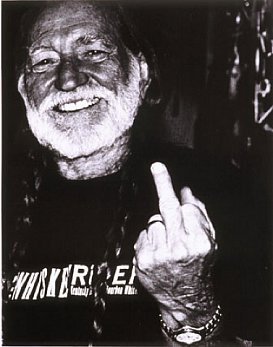
He smoked a joint on the roof of the White House, sang with Julio Iglesias and on We Are The World, and he's still here. And still great -- sometimes. Willie Nelson, much like Dean Martin, has an effortless approach to life -- and recording. He could, as they say, sing a telephone directory and make it sound intersting.
But latterly it is almost as if that is what he is doing: far too many albums with Famous Guests, knocked-off albums which include often old songs from his notebook, and then the odd gem. There's a lot of Willie in the world. Among them, the following . . .
Willie Nelson, Milk Cow Blues (2000) 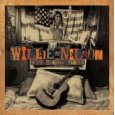
As Robert Christgau said in the Village Voice, blues isn't his metier.
So despite the roll-call of guests (Keb Mo, Dr John, B.B. King, et al) and his recent honouring with a B.B. King Blues Hero award at the House of Blues, we agree: great voice, good songs 'n all, but a blues singer?
No way, Ray.
Willie Nelson, All the Songs I've Loved Before (2001) 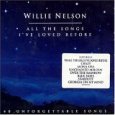
Nelson is as distinctive a singer as Sinatra with that easy feel of a nasal Bing Crosby. All this was known to country lovers long before he became a household name through albums such as Stardust ('78), which found him singing material from the Great American Songbook, jazz and country standards and even the Sinatra classic One For My Baby.
This 40-track double-disc draws on that latter period -- tracks from Red Headed Stranger, all 10 off the original Stardust, two duets with Julio Iglesias, and others -- and so, if you want to get snobby, is aimed at those who want background music for dinner table conversations.
Although some of us understandably prefer country-Willie, it's hard to argue with his vocal gifts even if he sleepwalks through many tunes here. He always did, that's his appeal. And it is Willie after all, one of America's greatest singers and song interpreters.
Willie Nelson, The Great Divide (2002) 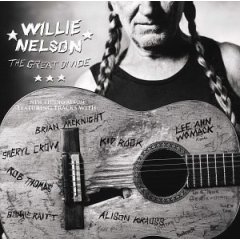
Usually when a 14-year-old says, "What are you listening to that for?" you just ignore them, right? But in this case -- Willie singing Cyndi Lauper's Time After Time -- the kid had a point. Just as well he didn't stick around for the rest of this Willie-by-numbers.
This umpteenth album from someone who once redefined country and has a distinctive delivery offers the man a chance to sing Willie-type lyrics: the title track's relationship metaphor; "I may lack social graces"; a Bernie Taupin lyric saying "this face is all I have, worn and lived in" and another (with Kid Rock) which has a gunfighter metaphor and says there's "always someone younger steppin' up to be the next outlaw."
Yep, it's Willie doing a Willie. With Sheryl Crowe and Bonnie Raitt among the guests, a cover of Just Dropped In (To See What Condition My Condition Was In) and strings all over some of the ballads you've got a very unfocused and disappointing Willie album.
Wille Nelson: Crazy, The Demo Sessions (2003) 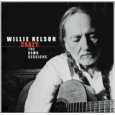
There are many Nelsons out there: the outlaw country singer, MOR entertainer just a haircut short of a Vegas engagement, crazy ol' dope-smokin' Willie, Tex-Mex Willie ...
So I declare right off my preference for this kind of Willie, the singer-songwriter in the studio -- half the songs are just him sitting with his guitar -- exploring the nuances of his lyrics, distinctively dragging his voice behind the beat, keeping it simple.
This is a collection of one-take studio demos from the early 60s, a number coming in under the two-minute mark and most pretty melancholy. Along with a band version of the title track, which Patsy Cline took to number two on the country charts, there's also a bleak solo version of Permanently Lonely, the cautionary Are You Sure?, and his working drawings for songs (such as Darkness on the Face of the Earth which appeared on the recent Teatro) which he would later revisit.
The band tracks sometimes crackle with energy or engage in melancholy steel guitar (the moving Something to Think About), but the best here is in the introspective solo tracks.
Either way, it's Willie for willing.
Willie Nelson: It Will Always Be (2005) 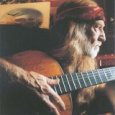
Willie Nelson And Friends: Outlaws And Angels (2005)
Now in his 70s, Nelson shows no signs of slowing down, although it's fair to observe that for the past few decades he's been going at his own leisurely pace. In his case, speeding up would be more of a surprise as he lives his life much the same way as he sings and plays guitar, in his own casual way and slightly behind the beat.
There are plenty of Willie Nelsons these days: the outlaw and red-headed stranger; the MOR balladeer who became the Bing Crosby of country; the golfer and the stoner; the survivor of his generation; the legend.
The first of these two albums shows the breadth of his musical vision and includes material by Tom Waits and Kathleen Brennan (the lyrically simple Picture in a Frame) and Toby Keith (the weary, working class narrative of Tired); duets with Norah Jones, Lucinda Williams and daughter Paula; and a tough-minded revisit of the Allman Brothers' Midnight Rider. There are also moving originals like the musically and lyrically evocative Texas, and the title track which places itself among his greatest work.
Nelson's weather-beaten voice finds its equal here in the ballads but he also kicks along with Big Booty and I Didn't Come Here (And I Ain't Leavin'). But it is those slow, considered songs like Dreams Come True with Jones, and Overtime with Williams (who mostly avoids her increasingly mannered drawl) where Nelson is at his most poignant.
That Nelson should be still making important and affecting music at this stage of his life, almost half a century after his first sessions, is little short of remarkable. 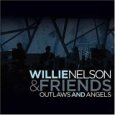
Outlaws and Angels comes from last year's live television special and is a collision of famous friends including Merle Haggard, Kid Rock, a throat-abusing Al Green, Shelby Lynn (for an appealing, lazily delivered lounge version of Stormy Weather), Ben Harper, Keith Richards, Lucinda Williams and more.
The sheer weight of having ever-changing guests means it never quite settles in for long enough and that somewhat kills the flow (great doco though, let's hope a television channel scores it). But it is one helluva party from Georgia On A Fast Train (with Toby Keith and Joe Walsh) to I'll Fly Away with Merle. And the exceptional band includes Jimmy Ripp and Nils Lofgren, pianist Ivan Neville, drummer Jim Keltner and harmonica player Mickey Raphael among others.
Two very different albums: the first mostly thoughtful and for home consumption, the second for when summer comes and you've got that barbecue fired up, friends around and bit of a mood on.
These reviews first appeared in the New Zealand Herald www.nzherald.co.nz

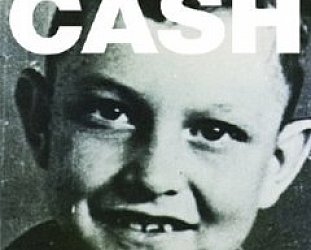
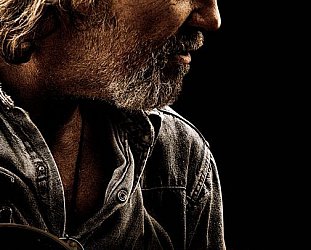


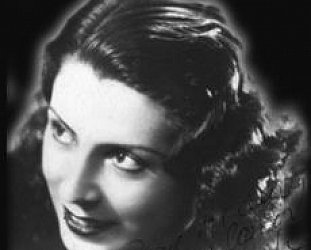
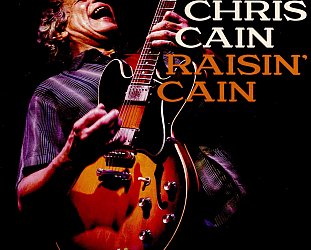
post a comment